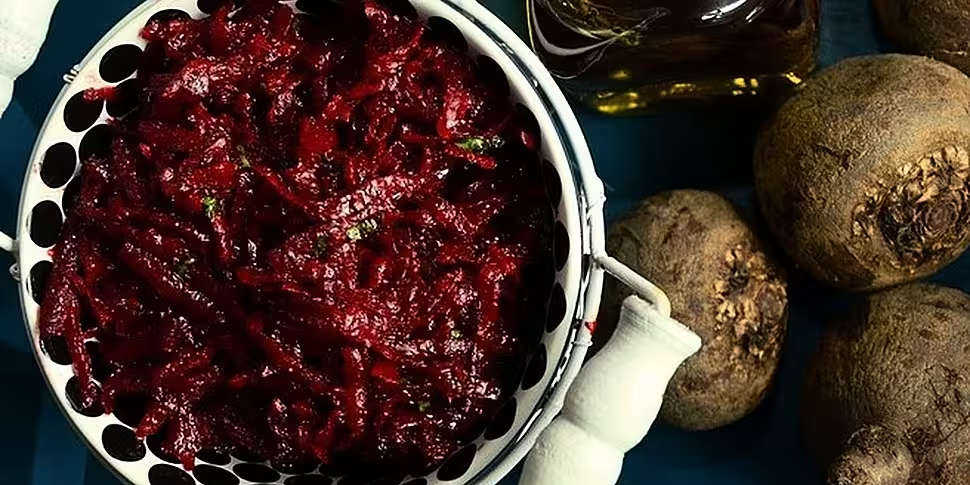Superfoods - foods that are classified by their dense concentration of vital vitamins and minerals, antioxidents or healthy enzymes - have become a huge diet trend in recent years.
With many of the superfoods consumed in Ireland imported from abroad, such as maca powder from Peru and goji berries from China, we take a look at some superfoods grown here in Ireland and their potential benefits.
Salmon
Salmon is an excellent source of vitamin B12, vitamin D and selenium. It is a good source of niacin, omega-3 fatty acids, protein, phosphorus and vitamin B6.
Omega-3 promotes healthy joints and skin and reduces the risk of heart disease, while vitamin D is essential for healthy bones and teeth.
Beetroot
Beetroots, especially the greens (which can be cooked just like spinach), are rich in calcium, iron and vitamins A and C. They are an excellent source of folic acid and a very good source of fiber, manganese and potassium.
Beetroot is also rich in nitrates. When ingested, scientists believe our body converts nitrates into nitric oxide, a chemical thought to lower blood pressure.
Oats
Oats are loaded with important vitamins such as vitamin B1 and vitamin B5, iron, manganese and antioxidant plant compounds. They also contain large amounts of beta-glucan, a type of soluble fiber.
Beta glucan has a cholesterol-lowering effect that reduces the risk of coronary heart disease, and can help to reduce blood pressure.
Snails
Snails (yes, Ireland now has a snail farm!), contain essential fatty acids, calcium, iron, selenium, magnesium and are a rich source of vitamins E, A, K and B12.
Magnesium helps to maintain normal muscle and nerve function, keeps heart rhythm steady, supports a healthy immune system, and keeps bones strong.
Pumpkin
Pumpkins contain vitamin C, vitamin E, and the antioxidant beta-carotene, which a compound that converts into a form of vitamin A to assist in eye protection and the prevention of cataracts.
Pumpkin seeds in particular are an excellent source of tryptophan, an essential amino acid that is converted to serotonin, a chemical associated with healthy sleep and happiness.
Barley
Barley provides a range of important vitamins and minerals: fiber, selenium, B vitamins, copper, chromium, phosphorus, magnesium, niacin, and more.
Barley's high source of fiber help with maintaining a healthy digestive system, lowers cholesterol levels and may lower your risk of developing hemorrhoids.
Bee Pollen
Bee pollen is a nutrient powerhouse of eighteen vitamins including a B complex, all essential amino acids, fatty acids and enzymes, and is made up of at least 25% protein.
Bee pollen has also been found to be a powerful anti-inflammatory, and can help reduce stress levels due to its high magnesium and B vitamin content.
Seaweed
Seaweed contains a rich supply of minerals, most prominently calcium, copper, iodine and iron. It is also rich in protein, fibre and vitamins, specifically vitamin K and folic acid, while being low in calories and fat.
Seaweeds contain lignans (naturally occurring chemical compounds) which have anti cancer properties, and contain chlorophyll, which is a powerful, natural detoxifier that helps to draw out waste products.
Live E3 algae
This nutrient dense superfood, a blue green sea algae, that contains over 65 vitamins, amino acids and essential fatty acids, including minerals thiamine, riboflavin (vitamin B2), niacin, biotin and pantothenic acid.
Vitamin B2 natural immunity as it strengthens the antibody reserves and body defenses.









